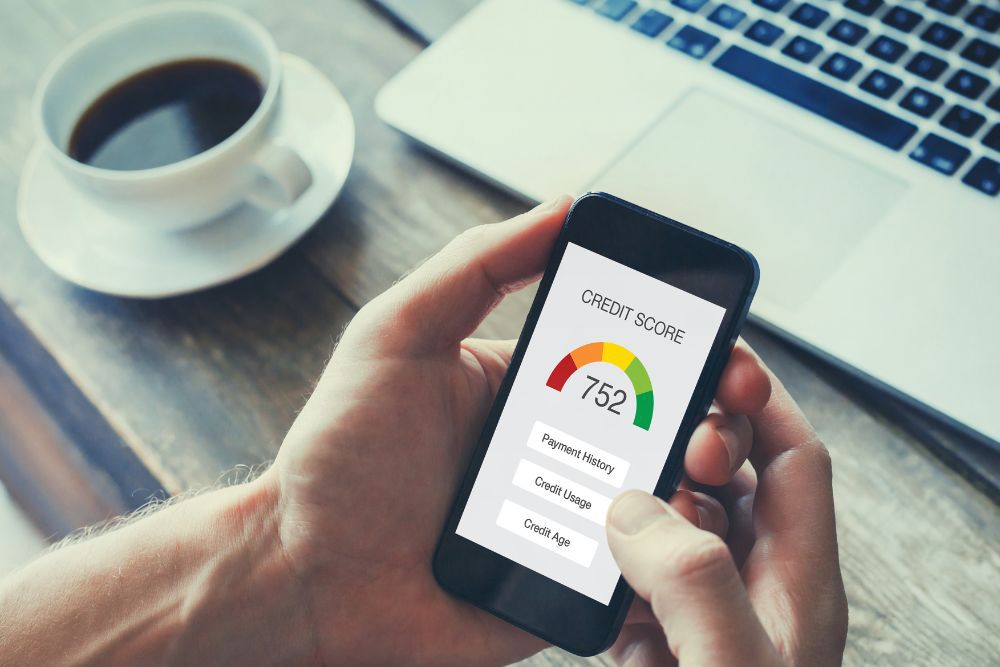

How To Get A Small Business Loan In Singapore With Low Credit Score Or Collateral?

It is not an easy task to run a small business. Navigating the competitive financial environment may be extremely difficult, particularly when looking for more funding.
There are a lot business owners who are looking for small business loans in Singapore, but they are having trouble getting one because they have a low credit score, or they do not have any assets to put up as security.
There are, however, solutions available on the financial market that might make this trip more doable. The purpose of this article is to discover several ways that may be used to get SME loans in Singapore without the need of a solid credit history or collateral.
The Impact of Low Credit Score in Obtaining an SME Loan in Singapore

Many Singaporean entrepreneurs need a business loan to expand or fuel the growth of their businesses. Obtaining financial help might be difficult with a low credit score.
Singaporean credit ratings indicate creditworthiness. From 1000 to 2000, this number indicates financial history, with lower scores mean bad credit. Business lenders use this score to evaluate borrower risk.
Lenders may identify bad credit or low credit score as a risk of loan default. High-risk status may effect loan applications. They may be more cautious and hesitant to approve applicants with low credit score. Therefore, ending up with a rejected application.
Let’s look at the consequences of a low credit score to comprehend how it affects your SME loan application.
Limited Approval Opportunities
Business owners with poor credit scores have fewer loan approval chances. Loan providers use credit ratings to assess borrowers’ dependability. A poor credit score may raise SME loan evaluation, hesitation, and rejection.
Higher Interest Rates
Even if a business owner manages to secure an SME loan with a low credit score, the consequences extend to the terms of the loan. Lenders, perceiving higher risk, may impose higher interest rates. This may raise borrowing costs, hurting the business’s profitability and financial stability.
Restrictive Loan Terms
Beyond interest rates, a poor credit score might limit loan periods. Business owners may have less financial flexibility due to shorter payback terms or stricter collateral requirements from lenders.
Lower Loan Amounts
Lenders may restrict low-credit company owners’ loan amounts. SMEs may struggle to get capital for growth, inventory management, and operating costs due to this restriction.
Strained Relationships with Lenders
Low credit scores may strain relationships between business owners and lenders, leading to repeated rejections or difficulties completing loan requirements. This damaged connection may undermine future finance or negotiation efforts.
How to Improve Credit Score
Although difficult, a low credit score can be manageable. Understanding how to fix your credit score may improve loan approval chances. Slowly improving creditworthiness may lead to better borrowing terms.
- Timely repayments. Consistent, timely repayments are key to improving credit scores. Lenders see financial responsibility and dependability in timely payments.
- Balanced Credit Utilisation. Maintaining a healthy savings account while balancing credit utilisation demonstrates smart financial management. Avoiding credit maxes improves creditworthiness.
- Addressing Outstanding Debts. Addressing and resolving debts positively impacts credit history. This approach may need creditor negotiations and organised payback agreements.
- Seek Professional Advice. Financial advisers and credit counselling programmes provide customised help for credit score improvement. These experts may advise on financial matters relevant to each person.
Understanding the effects of low credit scores and using smart credit management actions can heklp your business overcome obstacles, boost your loan approval chances, and succeed in a competitive business climate.
In addition, if you are interested in obtaining an SME loan without the need of collateral, there are still feasible solutions available for your business.
SME Loans in Singapore That Do Not Require Collateral
Most conventional loans need collateral, which may be difficult for small company owners with little assets. However, certain loans don’t demand collateral, giving business owners other options.
Merchant Cash Advance
One kind of financing that is obtained on the basis of projected future income is referred to as a Merchant Cash Advance. The financial institutions who participate in this financing arrangement provide an initial payment, which is often in the form of a lump sum, in exchange for a piece of the future sales that will be made via credit cards and debit cards.
Invoice Financing
By using outstanding invoices, invoice financing helps business access capital. Typically, you may borrow 90% of your company’s receivables. This financing technique may lend you up to $90,000 if your clients owe you $100,000.
Guarantor Supported Business Loan
If your personal credit history is poor, a strong guarantor with good credit and private property ownership might improve your chances of getting a Singapore business loan. This strategy increases loan approval chances and may enhance borrowing conditions.
To strengthen business loan applications, consider adding a guarantor with at least $30,000 in yearly income and good credit. Having a guarantor increases the probability of loan acceptance and may allow for a larger company loan. If the guarantor has private property, it boosts the borrower’s finances and increases loan funds.
While the guarantor’s property isn’t collateral, it’s crucial to assessing their net worth. Overall financial profile improves with this positive contribution. By using the guarantor’s financial stability and property ownership, SMEs may improve their borrowing conditions and achieve their financial goals more easily.
Bank guarantors must be directors or shareholders. Non-bank lenders enable third-party guarantors. Importantly, all guarantors must be Singaporeans or PRs. These criteria underline the need of strategic guarantor selection for business loans.
The Bottom Line
Getting a small business loan without good credit or collateral may seem impossible, but there are ways. Businesses may get funding that meets their requirements by examining other loan options and understanding their differences.
Being proactive, exploring many options, and choosing the best one for the company is crucial. Strategic preparation and smart choices may help you get the proper loan regardless of your credit score or properties.
Are you looking for a business loan in Singapore? Contact Capitall now to get in touch with one of our knowledgeable financial consultants.

































































































